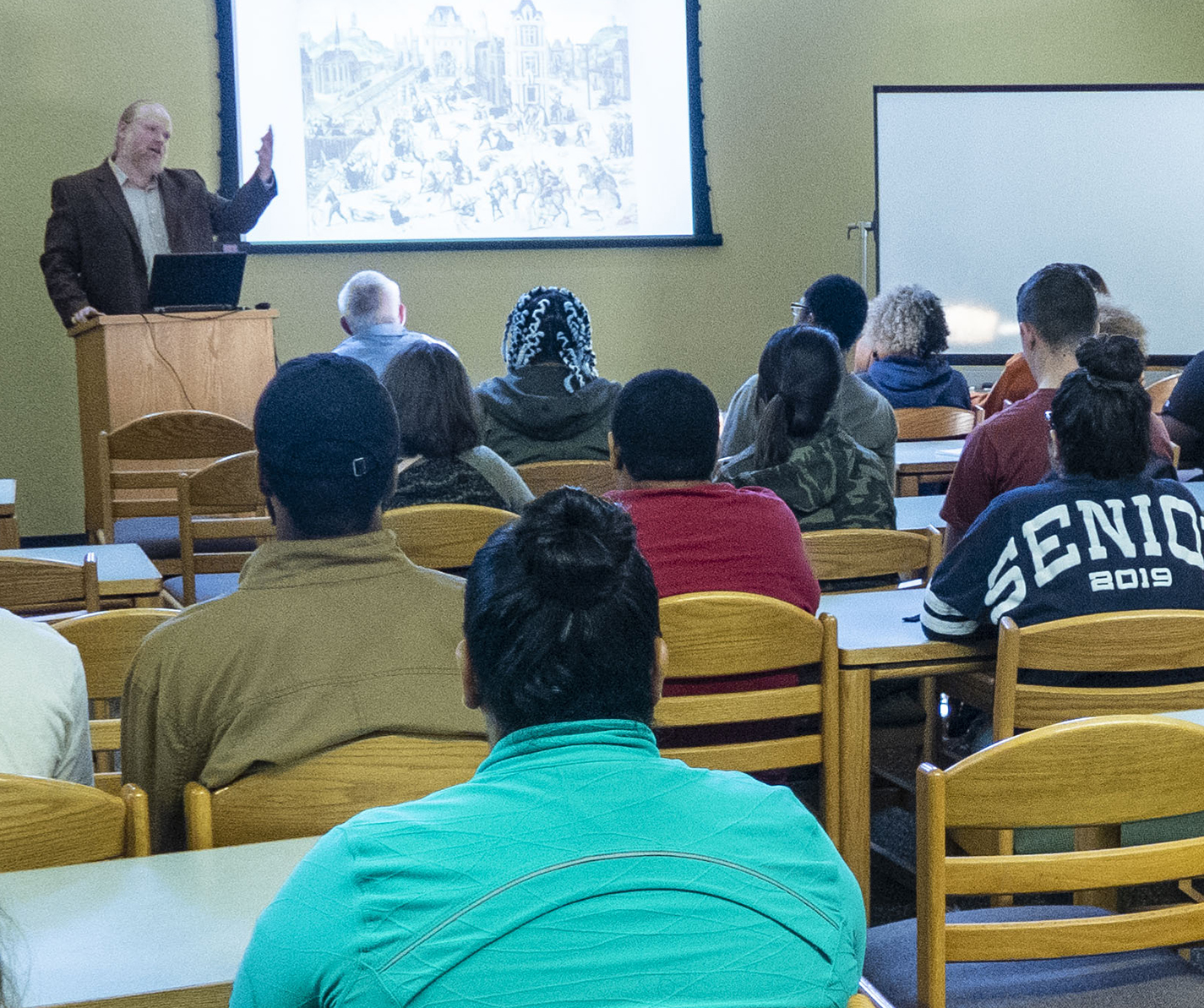By McKayla Rosser/reporter
The real-world influences behind Harry Potter can be summarized in three words: Renaissance, magic and science.
The Harry Potter book series debuted over 20 years ago, and SE Campus is hosting a series of speeches to celebrate, one of which was lead by SE history assistant professor Mike Downs who discussed the magical realism in the novels and the history much of it was born out of.
“In the Renaissance era… spirits are everywhere — they reside in rivers and nature and trees,” he said. “This is an era that is full of magick.”
Magick is different from magic, which is party tricks such as card tricks and sleight of hand, Downs said.
However, magick gives the powerless a sense of power. For example, in the medieval world it was empowering to a farmer when he blamed dying crops on magick because if the accused witch was stopped, the farmer then had hope for a better harvest the next year.
SE student Arrianna Dorsey said that magick is often used to explain things that can’t be understood.
“People hear ‘magick’ and think of fake stuff from movies, but there’s real ‘magick’ which people actually used,” she said.
Women were typically accused of practicing magick. One monk said this was because it was based in lust which is insatiable in women.
“One does wonder what would happen throughout the course of history if monks and priests could just get laid once in a while,” Downs joked.
Like magick, science has its roots in religion as well. Famous scientists like Galileo, Sir Isaac Newton and Einstein were not atheists. They were Christians who wanted to understand nature because understanding the workings of nature meant understanding the workings of God, Downs said.
“Einstein even said he just wanted to think how God thinks,” he said.
As communication spread and understanding grew, the need for magick faded. Farmers no longer needed to visit witches who could use divination to help find lost cows, instead they could just place an advertisement in the newspaper, Downs said. People also began to understand mental illness.
“You don’t want to blame witches and black magick anymore,” he said. “Now, blame society and blame your mom.”
The absolute decline in magick was marked by the Thirty Years War where Protestants and Catholics were focused on fighting each other, Downs said.
During a particularly violent battle at a wedding between a Protestant prince and a French Catholic woman, the protestant guests ended up butchered, including pregnant women.
SE student Danielle Gimboet attended Downs’ lecture and found one facet of the history of it intriguing.
“All the violence, that was really fascinating,” Gimboet said.
Gimboet specifically found the level of violence the Protestants suffered at the hands of the Catholics surprising, especially hearing about it in such graphic detail.
But magick isn’t completely gone from the modern day world, Downs said.
In 2011, Rick Perry signed a proclamation asking Texans to pray for rain.
“This is magick,” Downs said.

